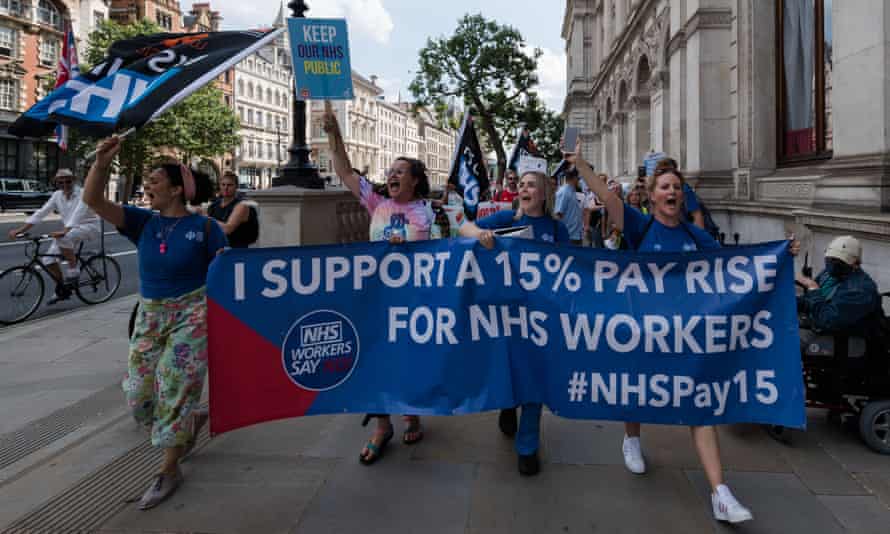‘Maohi Lives Matter': Tahiti protesters condemn French nuclear testing legacy

This is the third picture of a series of the Licorne thermonuclear test in French Polynesia. This is a scan of a (digitally restored) hard copy of a picture taken by the French army. Photo and caption by Flickr user Pierre J. (CC BY-NC-SA 2.0)
More than 1,000 people gathered in the Tahiti capital of Papeete to condemn the failure of the French government to take full accountability for its nuclear testing program in the South Pacific.
France conducted 193 nuclear tests from 1966–1996 in Mā’ohi Nui (French Polynesia). France's 41st nuclear experiment in the Pacific led to catastrophe on July 17, 1974, when France tested a nuclear bomb codenamed “Centaure.” Because of weather conditions that day, the test caused an atmospheric radioactive fallout which affected all of French Polynesia. Inhabitants of Tahiti and the surrounding islands of the Windward group were reportedly subjected to significant amounts of ionizing radiation 42 hours after the test, which can cause significant long-term health problems.
The July 17, 2021 protest was organized under the banner of #MaohiLivesMatter to highlight the continuing fight for nuclear justice. Campaigners said that despite the statement of former French President François Hollande in 2016 recognizing the negative environmental and health impact of the nuclear tests, the French government has done little to provide compensation or rehabilitation to French Polynesia.
After analyzing 2,000 pages of declassified French military documents about the nuclear tests, in March 2021 a group of researchers and investigative journalists from INTERPRT and Disclose released their findings on the health implications of the experiments.
According to our calculations, based on a scientific reassessment of the doses received, approximately 110,000 people were infected, almost the entire Polynesian population at the time.
The report has revived public awareness in France about the impact of their nuclear testing program. The French government held a roundtable discussion about the issue in Paris in early July. Though some criticized the French government for their alleged lack of transparency around the clean-up efforts in French Polynesia, officials denied these claims.
Protesters in Tahiti insisted that the French government should do more to address the demands of French Polynesian residents. Some noted that if French President Emmanuel Macron was able to seek forgiveness for the role of France in enabling the Rwanda genocide in 1994, he should at least make a similar apology for the harmful legacy of the nuclear tests in the Pacific.
The #MaohiLivesMatter protest has inspired solidarity in the Pacific.
Community leaders of West Papua expressed their support for the protest:
Youth activists from Pacific island nations also took part in the protest:
The International Campaign to Abolish Nuclear weapons (ICAN) Australia issued this statement of support:
As you gather in Maohi Nui on the 17th July we offer our deep respects to your leaders and community members who have long spoken out against the harms imposed by these weapons. We have heard your calls for nuclear justice. We continue to listen closely when you speak of the lived experience of the testing years and the on–going harms.
French President Emmanuel Macron is expected to tackle the legacy of nuclear testing during his visit to Tahiti this month.
Macron to discuss legacy of nuclear tests in
French Polynesia
Issued on: 25/07/2021 - 
Papeete (AFP)
French President Emmanuel Macron was greeted with flower garlands and Tahitian dancers on the tarmac as he touched down Saturday night for his first official trip to French Polynesia.
While in the South Pacific territory, he plans to discuss its strategic role, the legacy of nuclear tests and the existential risk of rising seas posed by global warming.
Residents in the sprawling archipelago of more than 100 islands located midway between Mexico and Australia are hoping Macron confirms compensation for radiation victims following decades of nuclear testing as France pursued atomic weapons.
The tests remain a source of deep resentment, seen as evidence of racist colonial attitudes that disregarded the lives of islanders.
"During this visit, the president intends to establish a strong and transparent dialogue by encouraging several concrete steps, on the history with the opening of state archives as well as individual compensation," said a French presidential official, who asked not to be named.
French officials denied any cover-up of radiation exposure at a meeting earlier this month with delegates from the semi-autonomous territory led by President Edouard Fritch.
The meeting came after the investigative website Disclose reported in March that the impact from the fallout was far more extensive than authorities had acknowledged, citing declassified French military documents on the nearly 200 tests.#photo1
Only 63 Polynesian civilians have been compensated for radiation exposure since the tests ended in 1996, Disclose said.
Macron, who arrived in the South Pacific after a visit to the Olympic Games in Tokyo, will also lay out his strategic vision for the strategically valuable territory, where China has made no secret of its push for military and commercial dominance.
One of three French territories in the Pacific, French Polynesia has a population of around 280,000 over a huge swath of island groups spanning an area comparable in size to Western Europe.
Tahiti is the most densely populated of the islands.
Macron "will present the Indo-Pacific strategy and the position France intends to maintain in this increasingly polarised zone", the Elysee official said.
Macron also plans to address risks for the islands from rising sea levels as well as cyclones that some scientists warn could become more dangerous due to climate change.
But his first visit will be with hospital workers racing to combat rising Covid-19 cases with vaccines.
Many Polynesians remain wary of the jabs, with just 29 percent of adults vaccinated, compared with almost 49 percent across France nationwide.
© 2021 AFP
Sinking of the Rainbow Warrior - Wikipedia
- Overview
- Background
- Sinking of the ship
- France implicated
- Aftermath
- See also
- Further reading
- External links
The sinking of Rainbow Warrior, codenamed Opération Satanique, was a bombing operation by the "action" branch of the French foreign intelligence services, the Direction générale de la sécurité extérieure (DGSE), carried out on 10 July 1985. During the operation, two operatives sank the flagship of the Greenpeace fleet, Rainbow Warrior, at the Port of Auckland in New Zealand on her way to a protest against a planned French nuclear test in Moruroa. Fernando Pereira, a photographer, drowned on the sinking ship.
The Day French Secret Agents Bombed a Greenpeace Ship
2021-05-19 · In 1985, French secret service agents planted two bombs and sank the Greenpeace ship, the Rainbow Warrior. Docked in Auckland, New Zealand, Greenpeace was preparing for …











 Demonstrators take part in a protest against the government of Brazilian President Jair Jair Bolsonaro in downtown Rio de Janeiro, Brazil on July 24, 2021. Carl de Souza AFP
Demonstrators take part in a protest against the government of Brazilian President Jair Jair Bolsonaro in downtown Rio de Janeiro, Brazil on July 24, 2021. Carl de Souza AFP A demonstrator holds a placard reading 'Impeachment' on an image depicting Brazilian President Jair Bolsonaro during a protest in downtown Rio de Janeiro on Saturday. (Carl de Souza/AFP/Getty Images)
A demonstrator holds a placard reading 'Impeachment' on an image depicting Brazilian President Jair Bolsonaro during a protest in downtown Rio de Janeiro on Saturday. (Carl de Souza/AFP/Getty Images)

